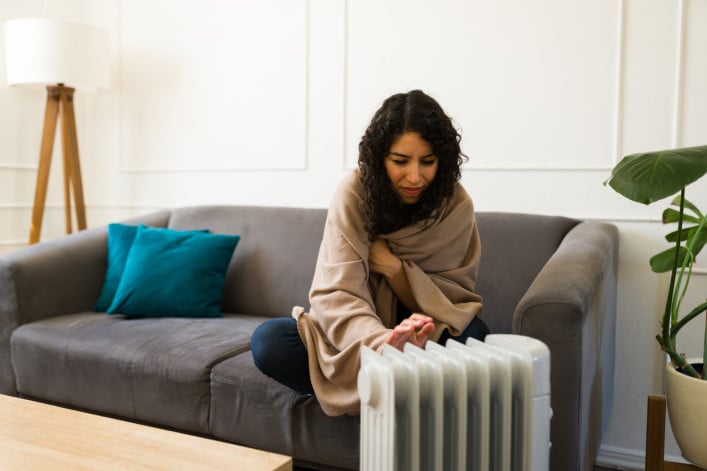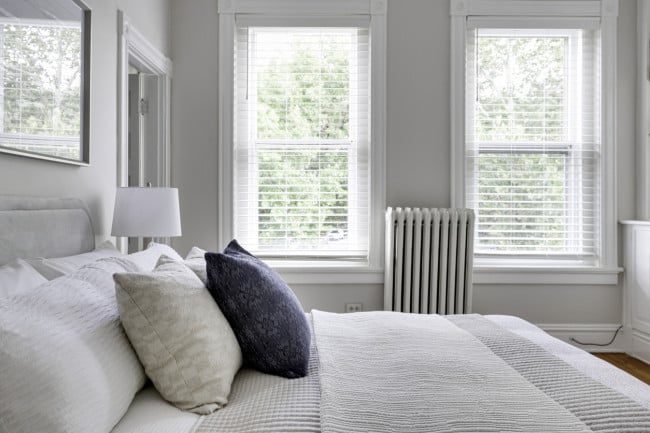Ask Altagracia: My electric fan heaters cost a fortune to run. How do I get the landlord to replace them?
- You can take legal action if the heat is insufficient but not if it’s just expensive
- Creating a tenant association may help provide leverage to get an upgrade

If your apartment's heating system is not working and you need to add other heaters, your landlord must take action, said Altagracia Pierre-Outerbridge of Outerbridge Law.
istock
During winter, the electric fan heaters in my rent-stabilized apartment are very expensive to run. Tenants pay for heat in our building. How can we get the landlord to switch the heating units to something more efficient?
If tenants pay for heat, there may be little incentive for your landlord to install more efficient equipment. However, if the heating is insufficient to the point that you need to supplement it, your landlord will need to come to the table.
“If it’s not working and you need to add other heaters or run it overtime, then it becomes a condition of the apartment that needs to be dealt with,” said Altagracia Pierre-Outerbridge, attorney and founder of Outerbridge Law representing residential tenants, condo owners and landlords.
All tenants in New York City are protected by the warranty of habitability, which requires landlords maintain safe, livable conditions in apartments and common areas. Failing to provide heat is a violation of that law.
Heat rules in NYC
More specifically, landlords have a duty to provide heat between October 1st to May 31st when the outdoor temperature is below 55 degrees. This is called heat season. “If apartments can’t be heated to 68 degrees during the day and 62 degrees at night during heat season, a landlord can face legal action in housing court,” Pierre-Outerbridge said.
Your first step, if your utility bills are excessive, is to monitor your usage to ensure it is directly related to your bill. “If you are away for the weekend with your heat switched off but you are billed for usage during that time, there may be a metering issue that needs to be addressed by the utility company,” Pierre-Outerbridge said.
If you conclude the heating is insufficient you can file a complaint with New York State Division of Housing and Community Renewal (DHCR) for a reduction in services.
“DHCR will send an inspector and determine whether the heat meets the mandated standards,” Pierre-Outerbridge said. This process can take some time, but a successful DHCR proceeding will end with an enforceable judgement and you can also be awarded attorneys fees.
Withholding rent for inadequate heat
Another approach to bring the landlord to the table is to withhold your rent. As a tenant, the leverage you have over your landlord is your monthly rent payments. “If you withhold rent, you can face eviction but your defence in this case would be insufficient heat,” Pierre-Outerbridge said.
Seeking some kind of settlement with your landlord will be more affordable than litigation. One of your demands will be the installation of more efficient heating. Mini-splits are a popular retrofit for buildings trying to reduce carbon emissions or improve efficiency. These systems provide both heating and cooling so you may still be subject to an air conditioning surcharge.
If the heating issues are a problem for your entire building, you will have a greater chance of success if you work together. This will require outreach to your neighbors—it might take some time but the payoff is that there’s more leverage if a group of tenants are working and negotiating together.
“If you work as a group and engage an attorney to help you, the legal costs to each individual will also be less,” Pierre-Outerbridge said.
Altagracia Pierre-Outerbridge, Esq. is the owner of Outerbridge Law P.C, focusing primarily on tenant representation. The firm represents all sides in landlord-tenant litigation and transactional matters such as month-to-month holdovers, nuisance cases, licensee cases, harassment claims, repair cases, tenant buyouts, succession claims, DHCR overcharges and rent reductions and more. Pierre-Outerbridge has 15 years of experience litigating in Supreme, DHCR, and Housing Court. To submit a question for this column, click here. To contact Outerbridge Law P.C. directly, call 212-364-5612 or 877-OUTERBRIDGE, or schedule a meeting today.
You Might Also Like



























